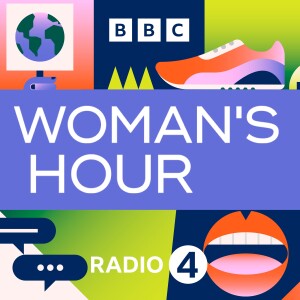
Witness protection, Anti-LGBT law in Uganda, Author Harriet Gibsone, Women's World Cup squad
 2023-06-01
2023-06-01
Download
Right click and do "save link as"
A woman who was stalked by her husband and then placed into witness protection with a new identity to escape him, says she feels like she's the one being punished. She's complained to the police about the way her case was handled after being told she failed an assessment and was no longer being supported by them in her new life. She spoke to our reporter Melanie Abbott, and says she felt completely cut adrift. We hear her story of how she had to uproot her two children and start a new life with a new job in a new town, while her husband is free to live wherever he likes. Academic Rachael Wheatley from the university of Derby tells Anita how she is training police to be better at dealing with stalkers and how victims need better support.
The England manager Sarina Wiegman has this week named her squad for the Women’s World Cup in Australia and New Zealand in July. But star players like Beth Mead, Leah Williamson and Fran Kirby will all miss out because of injury. Wiegman is also keen to get her squad training together at the earliest possible opportunity, but says her plans are being blocked by the European Club Association who only want players released from their club teams at the end of June at the earliest. So what does this mean for England Women’s world cup chances and how will they fare down under? Anita finds out from Jo Currie, BBC women's sport reporter.
This week, Uganda’s President Yoweri Museveni signed the Anti-Homosexuality Bill into law. It’s a country already known for its strict laws against LGBT people, but the new bill includes legislation changes such as the death penalty for what is being described as ‘aggravated homosexuality’, for example anyone engaging in gay sex who is infected with a life-long illness such as HIV. The bill also states that anyone facilitating same-sex marriage in the country could face up to seven years imprisonment, and anyone promoting or normalising LGBT relationships could be served whole life sentences. Kasha Nabagesera, LGBT activist and founder of Freedom and Roam Uganda, one of the main lesbian, bisexual and transgender women's rights organizations in the country, joins Anita to discuss what this means on the ground.
Did you grow up in the 90s and noughties during the advent of the internet, when MSN, chatrooms and MySpace were the dominant platforms? Harriet Gibsone is an author and millennial who was part of the first generation to come of age online. In her new memoir Is This OK? One Woman’s Search for Connection Online, she examines the long-term impact it had on her and the pros and cons of online connection at different stages of her life, from being a teen to becoming a mother struggling with early menopause. She joins Anita in the Woman's Hour studio.
view more
More Episodes
Online scams, US election, Mary McCall Jr
 2024-10-30
2024-10-30
 2024-10-30
2024-10-30
Vanessa Feltz, Saudi Arabia, Medieval women
 2024-10-25
2024-10-25
 2024-10-25
2024-10-25
SEND Best Practice: What is working?
 2024-10-23
2024-10-23
 2024-10-23
2024-10-23
Rivals, J Smith Cameron, Lucy Letby case
 2024-10-22
2024-10-22
 2024-10-22
2024-10-22
012345678910111213141516171819
Create your
podcast in
minutes
- Full-featured podcast site
- Unlimited storage and bandwidth
- Comprehensive podcast stats
- Distribute to Apple Podcasts, Spotify, and more
- Make money with your podcast
It is Free
- Privacy Policy
- Cookie Policy
- Terms of Use
- Consent Preferences
- Copyright © 2015-2024 Podbean.com


